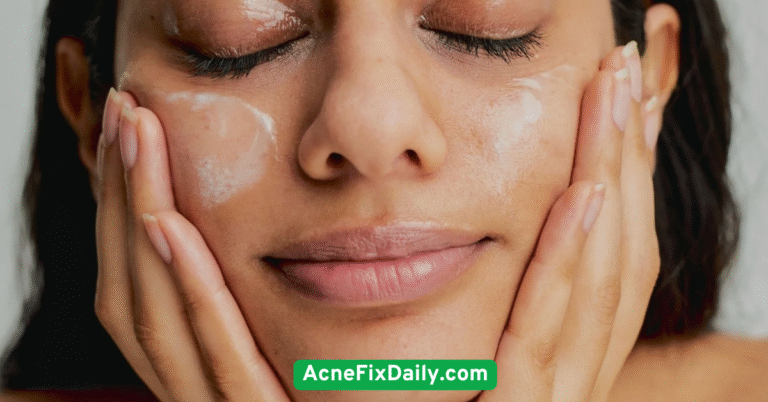15 Purifying Skincare Tips to Control Oil
Does your skin feel greasy by noon, even when you’ve barely stepped out of the house? You’re not alone. Oily skin is one of the most common skin concerns, and it can be tough to manage without the right skincare strategy. According to dermatologists, excess sebum production can lead to clogged pores, blackheads, acne, and a persistently shiny complexion. But don’t worry—you don’t need a 10-step routine or expensive products to fix it. You just need a smart, balanced plan.In this guide, we’ll walk you through 15 purifying skincare tips that can help regulate oil, minimize pores, and leave your skin feeling clean and refreshed—without stripping it dry. Whether you’re dealing with hormonal breakouts or just a shiny T-zone, these tips are practical, gentle, and proven to work.
1. Use a Gentle Foaming Cleanser Twice Daily
Using a gentle foaming cleanser specifically designed for oily skin can make a huge difference. Harsh cleansers may seem like a quick fix, but they can actually stimulate more oil production.
- Look for ingredients like salicylic acid, tea tree oil, or niacinamide.
- Avoid sulfates that strip the skin’s natural oils excessively.
- Cleanse morning and night to remove excess sebum, dirt, and pollutants.
Consistency is key. By using a gentle cleanser that targets excess oil without being too abrasive, you help maintain your skin’s pH balance and prevent future breakouts.

2. Try Double Cleansing at Night
Double cleansing has become a holy grail method for oily and acne-prone skin types.
- Start with an oil-based cleanser or micellar water to break down makeup and sunscreen.
- Follow up with a water-based foaming cleanser to remove deeper impurities.
This two-step process ensures that your pores stay clean, which is vital for controlling oil and preventing blemishes. Contrary to what you might think, using an oil cleanser first can actually help balance sebum production.

3. Use Toners with Astringent Botanicals
Toners help tighten pores, balance the skin’s pH, and remove any leftover residue from cleansing.
- Choose alcohol-free toners with natural astringents like witch hazel, green tea, or chamomile.
- Avoid drying alcohols which can irritate and dehydrate your skin.
A good toner preps your skin for serums and moisturizers while providing a light layer of hydration and control over oil production.

4. Exfoliate Gently Twice a Week
Over-exfoliating can backfire by irritating the skin and causing more oil production, but gentle exfoliation is essential.
- Use chemical exfoliants like BHA (salicylic acid) or fruit enzymes.
- Avoid physical scrubs with large, rough particles that can create microtears.
Exfoliating twice a week can help clear out dead skin cells and unclog pores, allowing your other skincare products to work more effectively.

5. Use a Clay Mask Weekly
Clay masks are powerhouse products for oily skin, especially when used once or twice a week.
- Opt for kaolin or bentonite clay to absorb oil and draw out impurities.
- Apply to your T-zone or full face depending on your oil distribution.
After rinsing, follow up with a hydrating toner or serum to maintain balance. Clay masks can instantly mattify the skin and reduce the appearance of pores.

6. Apply Lightweight, Oil-Free Moisturizers
Moisturizing might feel counterintuitive, but oily skin still needs hydration to stay healthy.
- Use oil-free, non-comedogenic moisturizers with ingredients like hyaluronic acid, aloe vera, or glycerin.
- Gel-based formulations tend to feel lighter on oily skin.
When your skin is properly hydrated, it’s less likely to overproduce oil to compensate for dryness.

7. Don’t Skip Sunscreen (Pick the Right One!)
Skipping sunscreen can lead to increased oiliness due to sun damage and inflammation.
- Choose matte-finish or gel-based SPF formulations.
- Look for labels that say “non-comedogenic” and “oil-free.”
Many brands now offer SPF products specifically designed for oily skin, so you don’t have to deal with greasy residue.

8. Add Niacinamide to Your Routine
Niacinamide (vitamin B3) is a multitasking ingredient that helps regulate oil production, soothe inflammation, and improve skin texture.
- Use a serum with 5% niacinamide concentration for best results.
- It also helps fade acne scars and reduce pore visibility.
It’s gentle enough for daily use and works well with other skincare staples like hyaluronic acid and retinol.

9. Spot Treat with Salicylic Acid or Benzoyl Peroxide
Breakouts? Don’t treat your entire face like a battlefield. Instead, use targeted treatments.
- Salicylic acid penetrates into pores to dissolve oil and dead skin.
- Benzoyl peroxide kills acne-causing bacteria.
Apply these treatments only to problem areas to prevent dryness or irritation elsewhere.

10. Use Blotting Papers or Mattifying Powders
Midday shine is one of the biggest frustrations for oily skin.
- Keep blotting papers in your bag for quick touch-ups.
- Use translucent mattifying powders to set makeup or reduce shine.
These tools help manage surface oil without disrupting your skincare or makeup base.

11. Stay Hydrated and Eat a Balanced Diet
What you put into your body affects your skin as much as what you put on it.
- Drink plenty of water to maintain internal hydration.
- Reduce intake of processed foods, sugars, and dairy which may trigger oil production.
- Eat foods rich in omega-3 fatty acids and antioxidants.
A healthy gut often leads to balanced skin.

12. Avoid Overwashing and Harsh Scrubs
More washing doesn’t always equal cleaner skin. In fact, it can do the opposite.
- Limit face washing to twice a day and after heavy sweating.
- Use lukewarm water instead of hot, which can strip natural oils.
Harsh scrubs can irritate and damage the skin, causing inflammation and more sebum production.

13. Incorporate Retinoids for Long-Term Control
Retinoids (vitamin A derivatives) are incredibly effective for oily, acne-prone skin.
- Start with an over-the-counter retinol and gradually build tolerance.
- Retinoids help reduce sebum production, unclog pores, and improve skin texture.
Be sure to use sunscreen daily, as retinoids can increase sun sensitivity.

14. Maintain a Consistent Routine
Switching products frequently can confuse your skin and worsen oiliness.
- Stick with a routine for at least 4-6 weeks to gauge effectiveness.
- Focus on balancing and supporting your skin, not attacking it.
Consistency allows your skin barrier to strengthen and helps regulate oil naturally over time.

15. Keep Your Pillowcases and Phone Clean
You might be doing all the right things, but environmental factors can sabotage your efforts.
- Change your pillowcase at least once a week.
- Clean your phone screen daily to avoid transferring bacteria and oil.
Small lifestyle tweaks like these can prevent breakouts and help your skincare routine work more effectively.

Conclusion
Managing oily skin isn’t about being harsh or going overboard with drying products. It’s about choosing the right balance of purifying, hydrating, and calming techniques. These 15 skincare tips are designed to help you build a gentle yet effective routine that minimizes oil, prevents breakouts, and boosts your skin’s overall health.By sticking with these tips and staying consistent, your skin can shift from overly shiny to naturally radiant. So take a deep breath, simplify your routine, and show your skin the love it needs—because balanced, happy skin is absolutely achievable!





